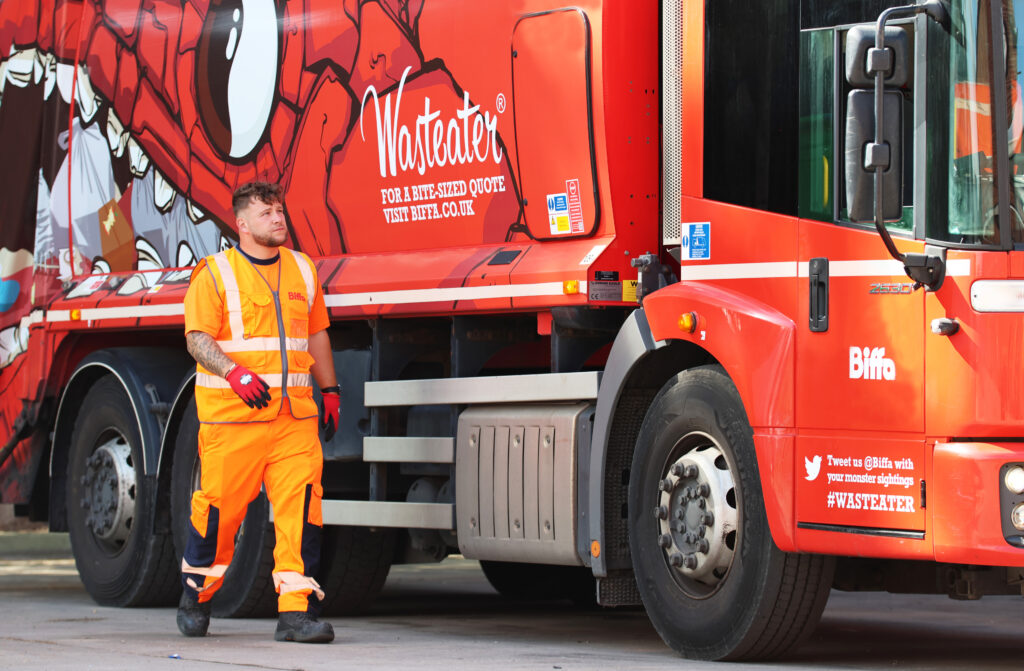The production and export of refuse derived fuel (RDF) gets a bad press in the UK because of a few poorly managed operations, according to Biffa chief executive Ian Wakelin.
In an interview with letsrecycle.com, Mr Wakelin defended the RDF market in the UK and said that exporting the material for energy recovery abroad benefitted both the economy and the environment.
And, while he said current regulations should be tightly enforced, he argued that further regulatory burden was not needed to crack down on bad practice within the market.
Mr Wakelin’s comments come in the wake of the Environment Agencys decision last month to halt RDF storage at waste management company Boomecos Avonmouth dock site in Somerset, due to complaints from nearby residents about a persistent fly problem (see letsrecycle.com).
Boomeco has apologised, but on top of criticism from local politicians, waste management firm Viridor also highlighted the situation as yet another example of poor practice being tackled by the Agency.
It is one of a number of interventions from the Agency regarding RDF storage and production, with Kent RDF firm Waste4Fuel Ltd currently awaiting a hearing at the High Court in London due to a large number of waste bales left at its site in Orpington (see letsrecycle.com story).
Focus
‘RDF gets a bad press but actually, managed properly, it is a very good market for the UK at the moment. We manage 400,000 tonnes of RDF each year, exporting it to all parts of Europe if we didnt do that it would all go to landfill.’
Ian Wakelin, Biffa chief executive
Speaking to letsrecycle.com, Mr Wakelin said: “Everybody always focuses on the negatives of RDF, such as the Boomeco incident, where clearly the operation there was inappropriate.
“But this to me is not an issue with RDF, this is about poorly managed operations. If all we did was enforce the existing regulations there shouldnt be a problem.”
According to Mr Wakelin, until viable solutions are found to deal with non-recyclable waste, it is more sustainable and economical to convert waste into RDF and export it aboard rather than to send it to landfill.
He said: “RDF gets a bad press but actually, managed properly, it is a very good market for the UK at the moment. We manage 400,000 tonnes of RDF each year, exporting it to all parts of Europe if we didn’t do that it would all go to landfill.”
Mr Wakelin added: “I always liken it [the RDF market] to recyclables. We are incapable of using it all in the UK so we export it all around the world.”
Regulation
Defra is currently considering responses to its recent consultation on the RDF market, as part of which stakeholders were asked for opinions on possible further regulation of RDF operators (see letsrecycle.com story).
But the Biffa boss said that current regulations were already “incredibly stringent”, describing the process of securing a licence to export RDF as “already very onerous due to trans-frontier shipment regulations and permitting”.
Related Links
As such, he said that high profile occurrences of poor practice in the sector should not be used to bring further regulatory burden to legitimate RDF operators.
He said: “This could be a classic baby out with the bath water situation couldn’t it? Everybody overreacts. It doesnt need tighter regulation. I would however absolutely welcome tighter enforcement of existing regulations surrounding RDF.”
Asked whether the very swift growth in RDF production in the UK in recent years made it difficult for regulators to keep up with operations, Mr Wakelin said: “I am not sure you can draw that conclusion. Can the authorities cope with regulating RDF? I cannot see why they shouldnt be able to.”







Subscribe for free